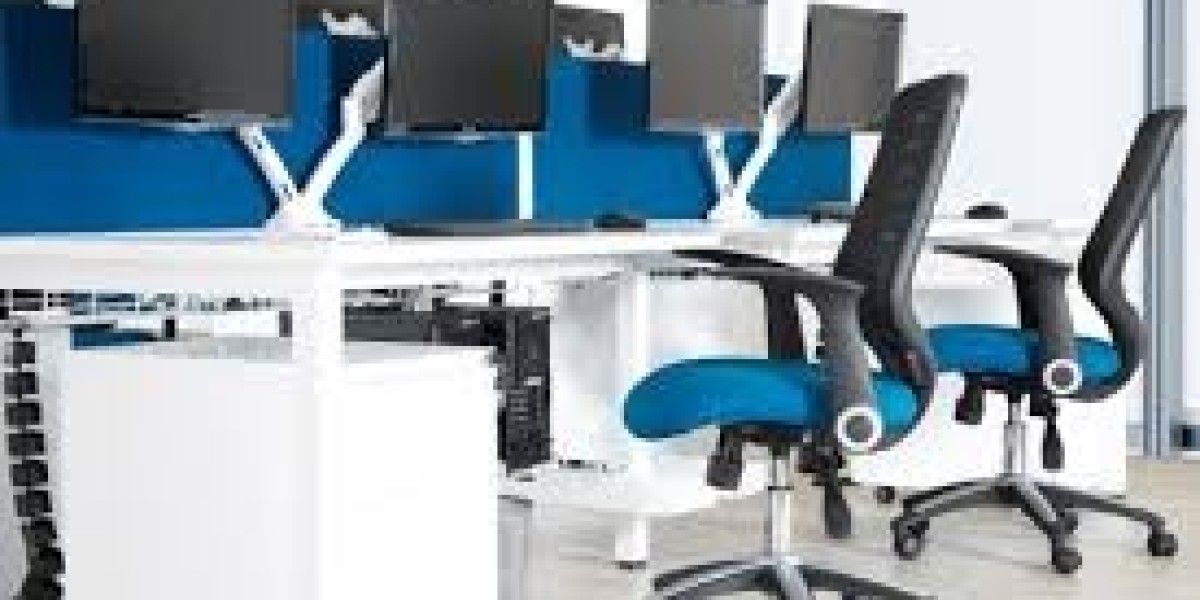The B2B Office Desk Market is poised for significant long-term growth, driven by structural shifts in how businesses design, equip, and manage workplaces. Hybrid work models, rising sustainability expectations, and digital transformation are redefining procurement strategies and product innovation. Companies are investing in versatile, ergonomic, and environmentally responsible office desks that enhance employee well-being and operational efficiency. Understanding the long-term market outlook helps businesses and manufacturers align their strategies with emerging trends, enabling them to remain competitive in an evolving global office furniture landscape.
Hybrid work driving sustained demand
Hybrid work is expected to remain a permanent feature of global workplaces, shaping desk procurement and office layouts. Organizations are prioritizing desks that support both individual work and collaborative activities, often opting for modular and reconfigurable designs. Hot-desking, mobile workstations, and flexible seating arrangements are influencing the type of desks purchased. Companies that strategically invest in hybrid-compatible office furniture can maintain productivity, accommodate fluctuating occupancy levels, and respond quickly to changing workplace policies.
Sustainability as a long-term driver
Sustainability continues to be a defining factor in long-term market growth. Organizations are increasingly demanding desks constructed from recycled or responsibly sourced materials. Modular designs that allow for component reuse reduce waste and align with corporate environmental goals. Compliance with green building certifications and regulatory standards further encourages sustainable procurement. In the long term, sustainability is not only a corporate responsibility initiative but also a market differentiator that influences supplier selection and customer loyalty.
Ergonomic and wellness-focused solutions
Ergonomics remains central to the market outlook, with continued investment in health-oriented office furniture. Height-adjustable desks, ergonomic chairs, and integrated workstation accessories enhance comfort and reduce workplace health risks. As organizations recognize the connection between employee wellness and productivity, demand for ergonomic solutions will increase. Future office desk designs are likely to incorporate both physical and digital wellness tools, including posture tracking and adjustable work surfaces.
Integration of smart technology
The adoption of smart office desks is expected to accelerate, reflecting broader digital transformation trends. Features like occupancy sensors, IoT connectivity, and wireless charging provide real-time data to optimize office space utilization. Organizations can monitor employee engagement, manage resources efficiently, and improve overall workplace functionality. Smart desks are likely to become standard in modern office designs, further strengthening the connection between technology and workplace productivity.
Procurement strategy evolution
Long-term market trends suggest a shift in procurement strategy from cost-focused to value-driven decision-making. Businesses are increasingly considering factors such as flexibility, sustainability, and technological integration when selecting office desks. Digital procurement platforms facilitate comparative analysis, customization, and supplier engagement. Organizations adopting data-driven purchasing strategies are better positioned to optimize resources, reduce inefficiencies, and enhance overall workplace effectiveness.
Regional outlook variations
Growth trajectories differ across regions. North America and Europe continue to emphasize ergonomics, sustainability, and smart technology, driven by regulatory compliance and mature markets. Asia-Pacific shows rapid adoption of hybrid-compatible and cost-effective solutions, while emerging markets prioritize durability and affordability. Manufacturers and suppliers that tailor offerings to regional requirements can capture high-growth opportunities and mitigate market risks.
Challenges impacting the long-term outlook
Despite growth potential, challenges such as rising raw material costs, supply chain disruptions, and employee resistance to change may affect long-term expansion. Companies must balance affordability with innovation, ensuring that sustainability and technology adoption do not compromise budget constraints. Strategic planning and supplier collaboration are essential to navigating these challenges while maintaining competitive advantage.
Conclusion
The long-term outlook for the B2B Office Desk Market is positive, underpinned by hybrid work adoption, sustainability priorities, ergonomic innovation, and smart technology integration. Businesses that invest in versatile, employee-centric, and eco-friendly solutions are well-positioned to meet evolving workplace demands. Manufacturers that anticipate these trends and provide adaptable, high-quality desks will benefit from sustained growth opportunities in this dynamic market.






